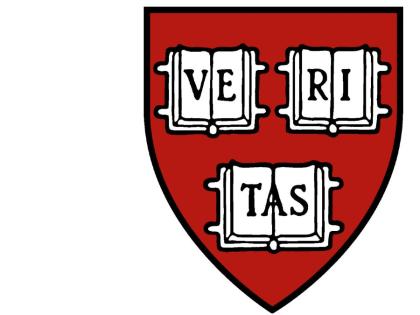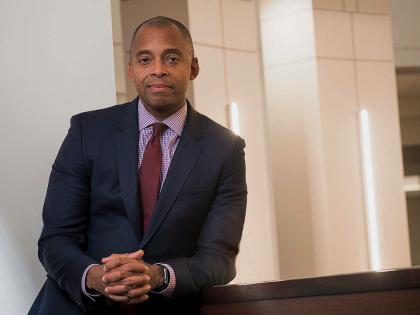What is the place of the scholar-athlete in Ivy League colleges today? First among the Ivy League’s statement of principles is the ideal that “intercollegiate athletics ought to be maintained within a perspective that holds paramount the academic programs of the institution and the academic and personal growth of the student athlete.” In practice, that means different rules than the rest of the National Collegiate Athletic Association (NCAA), such as 49 in-term days without athletic activity or expectation, and shorter “nontraditional” practice seasons. The goal, says Jeff Orleans, the League’s executive director, is to tell student athletes that “we have high expectations and high hopes for you in all kinds of both athletic and nonathletic ways. We are asking you to take time away from athletics to be sure that you have an opportunity to do all the other things that are available to you as an Ivy student.”
When he stops working for the Council of Ivy Group Presidents in June 2009, Orleans will conclude a quarter century as the steward of this ideal. In that time, the Ivy League has experienced tremendous growth, both in number of championship sports—there are now 33—and in staff. When he was hired in 1984, the organization was being run part-time by a Princeton professor with a part-time secretary. Today, Orleans oversees a nine-person staff that handles officiating, scheduling, television rights and licensing, as well as enforcement of NCAA andIvy rules and eligibility requirements for what is the largest conference in the country.
Spring Sport Wrap
Men’s TennisThe netmen (15-6, 7-0 Ivy) clinched the Ivy League championship for the twenty-seventh time with a sweep of Dartmouth at Beren Tennis Center. It was the Crimson’s third sweep of the year, but their first championship since 2004.
Women’s Golf
The Harvard women’s golf team, top ranked in the Northeast region, won its first-ever Ivy League championship this spring, besting defending champion Columbia by an impressive 10 strokes in a three-round tournament at the Atlantic City Country Club.
In the early 1980s, Orleans explains, “Because the league didn’t have a full-time dedicated director, the presidents individually, and some of their senior staff, had begun to spend a lot of time on athletics.” They were working with presidents of other colleges to expand competition in football through a new conference (now known as the Patriot League) where the players are also academically representative of the institutions to which they are admitted; in addition, they were changing the structure of Ivy League ice hockey and moving it into the Eastern Collegiate Athletic Conference, and, increasingly, dealing with compliance issues and the NCAA. Eventually, the presidents “realized they needed someone working for them full time who understood and was enthusiastic about athletics, but whose commitment to their values they could trust.”
They chose Orleans, a 1967 graduate of Yale, and later of its law school, whose experience spanned three years as a civil-rights attorney at the United States Department of Health, Education, and Welfare—where he helped draft regulations for the Title IX legislation—and nine years at the University of North Carolina (UNC), where he worked on desegregation and faculty governance as a special assistant to the president.
Orleans says he has drawn on his experiences at both jobs in running the Ivy League. The civil-rights work, he says, “helped me understand the way in which individual activities on a campus, if they are done well, can change people’s lives and open opportunities to them.” He points in particular to the League’s openness to women—not just on the field, but in athletic administration, where the Ivy League was one of the first conferences to give women a senior role in governance—as well as its broad geographic, socioeconomic, and ethnic variety, which can be sampled at ivyleaguesports.com in features such as “Black History” and “Ivy@50.” The public Division One athletic program at UNC gave him an understanding of the pressures of the larger world in which Ivy athletes and coaches compete. That has helped him as liaison between the Ivy presidents and their athletic directors—who “sometimes wish that the presidents would have, at least in their eyes, a more athletic perspective.” At the same time, he says, “I hope that the presidents know that I believe in what they are trying to do, so I think that I can be an honest broker in that respect.”
Orleans believes most people don’t understand and therefore don’t appreciate the complexity of the presidents’ goals: to provide, in his words, “a really sophisticated combination of personal and academic opportunity. Athletic partisans sometimes don’t see the opportunity that athletes have to do all kinds of other things throughout the institution.” Because athletic culture in America “tells you, ‘You are going to be an athlete first,’ sometimes our students really first wake up when they get to our schools and see not just the opportunity, but the expectation, that they’ll take advantage of [that option] by stepping outside their major noncurricular focus.”
His own interest in sports, Orleans reports—he claims no athletic talent—began as a fan growing up in the Bronx, when he could walk to New York Giant and Yankee games. At Yale, he says, he came to appreciate the kind of effort Ivy League athletes put in after rooming with a varsity swimmer.
He acknowledges that balancing the educational goals articulated by the Ivy presidents with the competitive demands of a Division 1 conference is not always easy. “The key task,” he says, “is to make athletics something that promotes the growth and development of the people who compete,” while making athletics in general a part of campus life.
In admissions decisions, says Orleans, “when [colleges] are looking to construct a freshman class, you look for people who are multidimensional and committed, and who will exploit the institution to its fullest” by stepping outside their extracurricular focus on sports. Academically and in terms of community service, the record of Harvard athletes, or any Ivy school’s athletes, is “as good as the non-athletes’ record” on that score, he says. He notes that athletic activity provides “discipline and growth for people in ways that matter throughout the rest of their lives, and if they come with intelligence and passion and perseverance as students, athletics will benefit them in the same way that dance and music and acting will.”
But Orleans also believes that athletics offer a special benefit. “Every time you compete, you take a big risk that you and your teammates will perform at your absolute best and yet lose, and be judged very publicly not to have succeeded,” he says. “In most other student activities, if everybody does his or her best, even if the result is not perfect, [the overall experience] is judged to be competent. Maybe you hear a false note, or see that a sentence gets dropped going from page one to page four of the Crimson, but as a whole, the performance [was] competent and exciting, the newspaper [was] competent and perhaps provocative. But those wonderful women on the Harvard hockey team played their hearts out in Duluth, and what folks know about them is that they didn’t win.
“And yet they learned from that. They took a risk every time they played. Those who are underclassmen are going to come back next year and try even harder, and those who are graduating are going to have learned how to get up the next day and do it again—as a group and in a way, I think, that is different from any noncompetitive activity. I think it is important to value that activity—and the people who engage in it—for educational reasons.”








